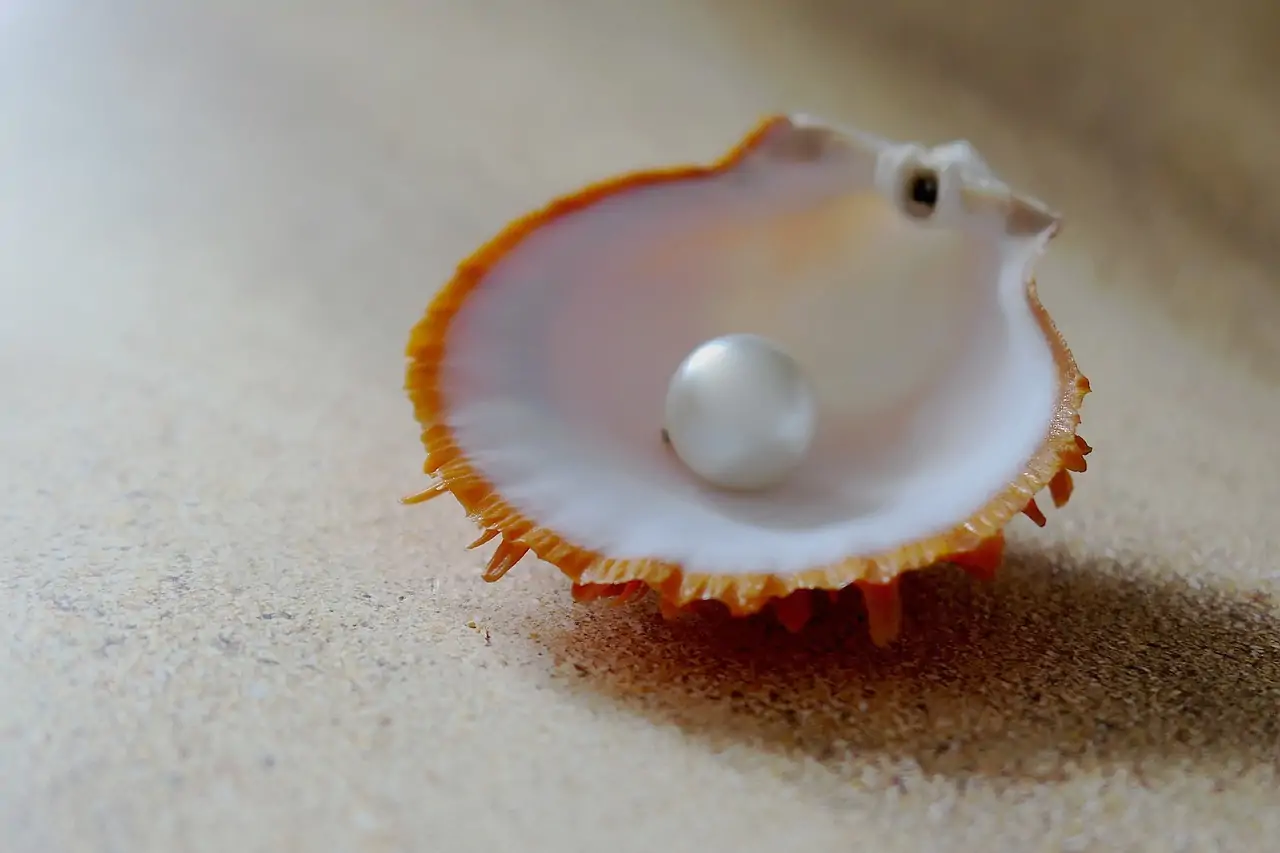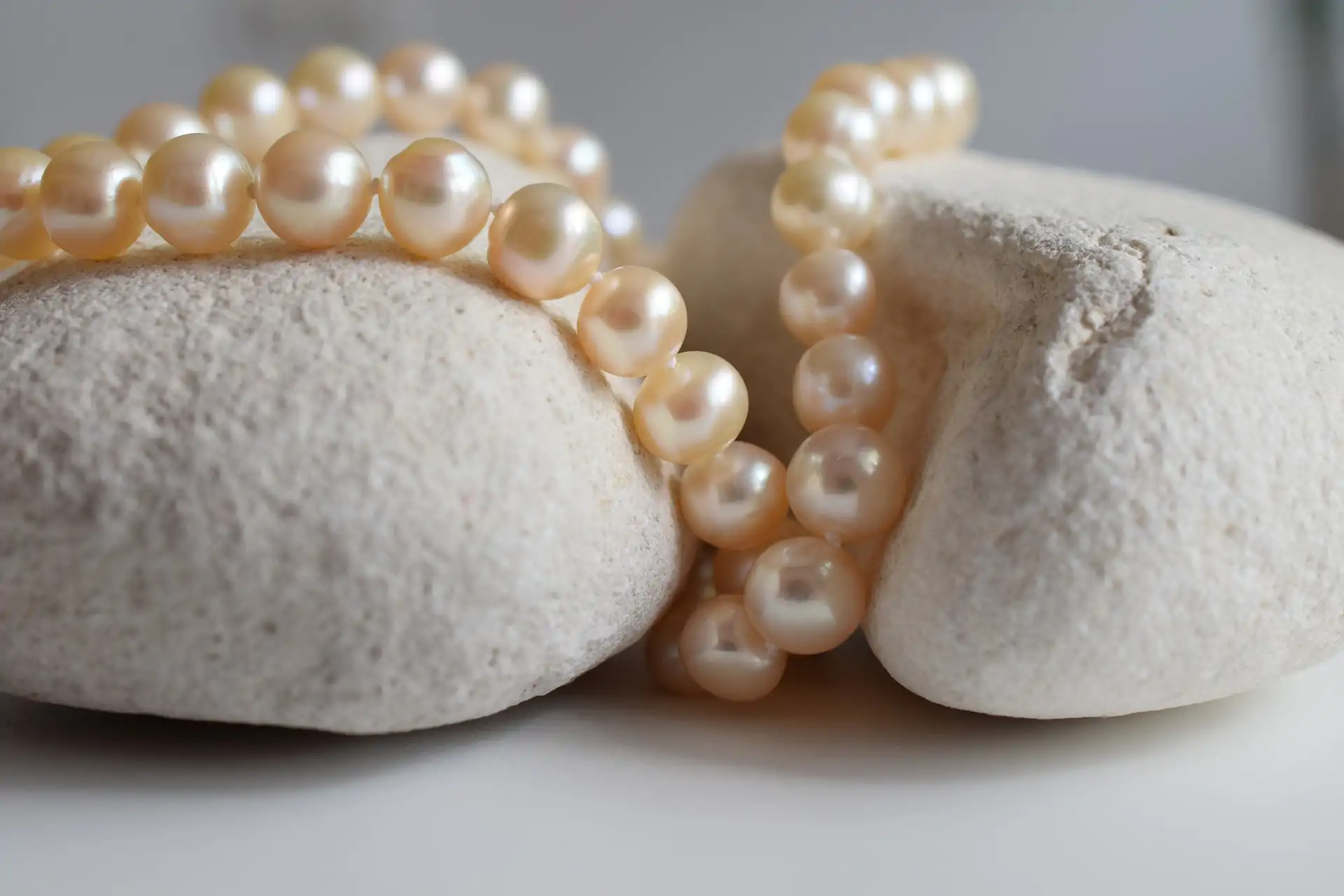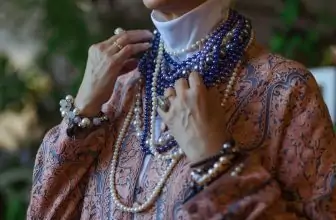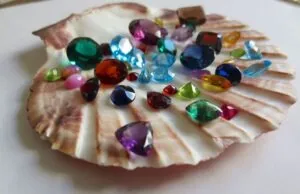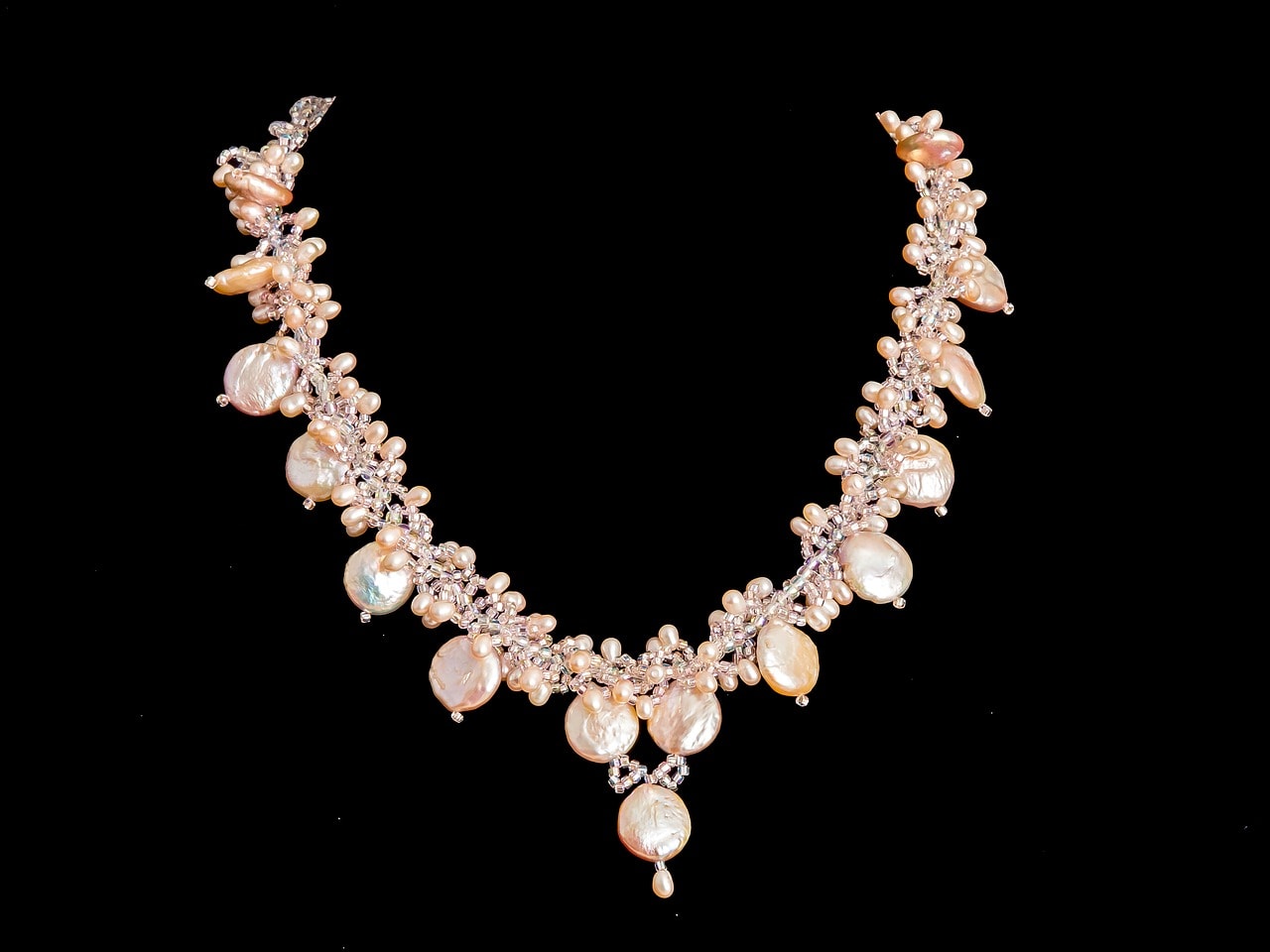
Table of Contents
Keshi pearls, known for their unique shapes and lustrous appeal, are a must-consider addition to any jewelry collection. Not confined to a specific pearl type, these pearls, named after the Japanese word for ‘poppy’, boast an array of sizes and colors.
Here’s a quick look at five compelling reasons why Keshi pearls, with their distinctive charm and versatility, should find a place in your jewelry collection. Let’s explore what makes them so special.
What are Keshi Pearls?
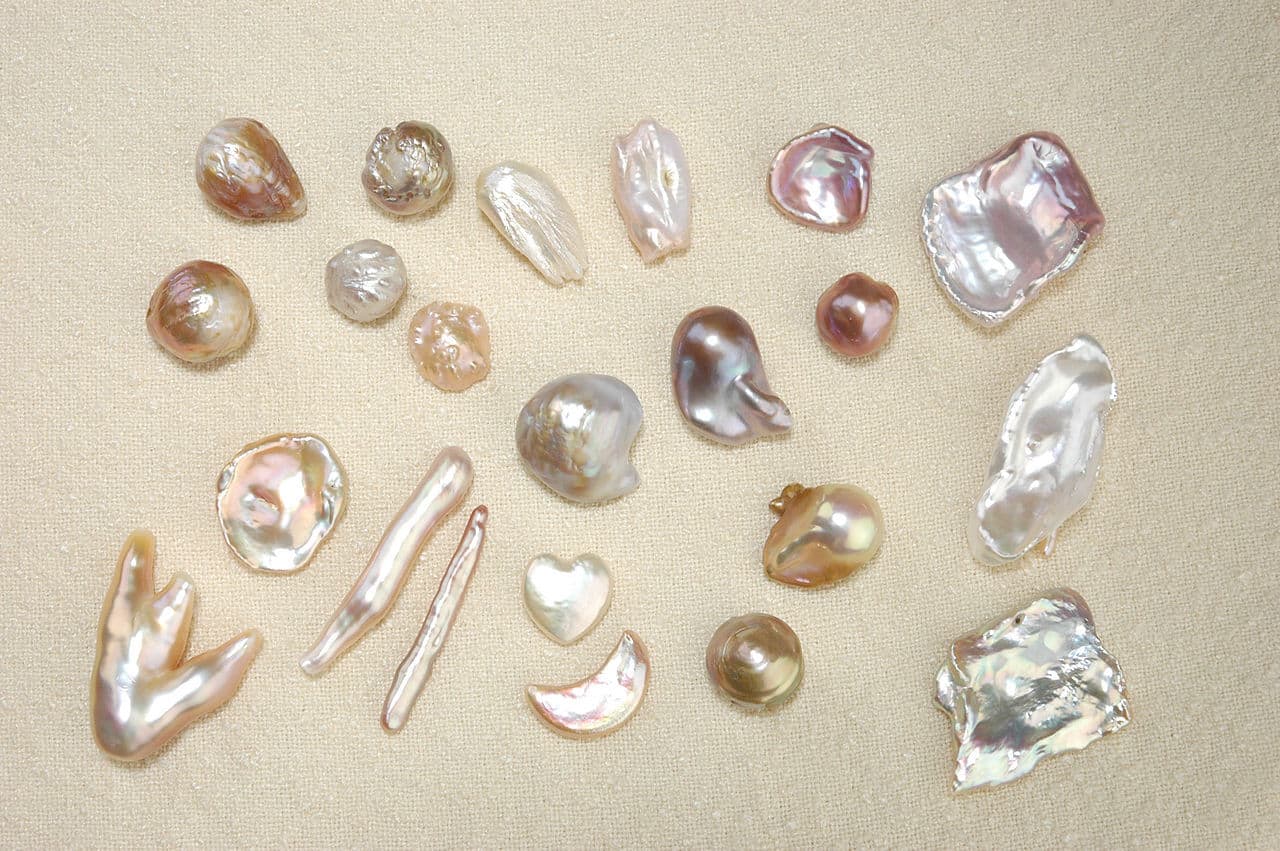
Keshi pearls stand out as a unique and captivating pearl type, famous for their natural creation and eye-catching look. Unlike regular pearls made through farming, Keshi pearls form naturally inside mollusks without any human help or inserted nucleus. They often appear as a side product of the pearl farming process.
The name “Keshi” comes from the Japanese word for “poppy seed,” reflecting their usually small size, though sizes can vary a lot. Their distinctiveness lies in their shape and shine. Keshi pearls fall into the baroque category, meaning they have non-round, irregular shapes. This irregularity gives them a range of unique and desirable shapes, making each one special.
You can find Keshi pearls in all kinds of pearl-making mollusks, like Freshwater, Akoya, Tahitian, and South Sea. This variety means they come in many different colors, based on the mollusk type and its environment. They often have a strong shine because they are made entirely of nacre, with no nucleus inside.
This all-nacre makeup not only adds to their shine but also makes them strong. Their unique qualities, combined with their stunning shine and diverse shapes and colors, make Keshi pearls a favorite among jewelry makers and pearl lovers.
Keshi Pearls are Highly Lustrous
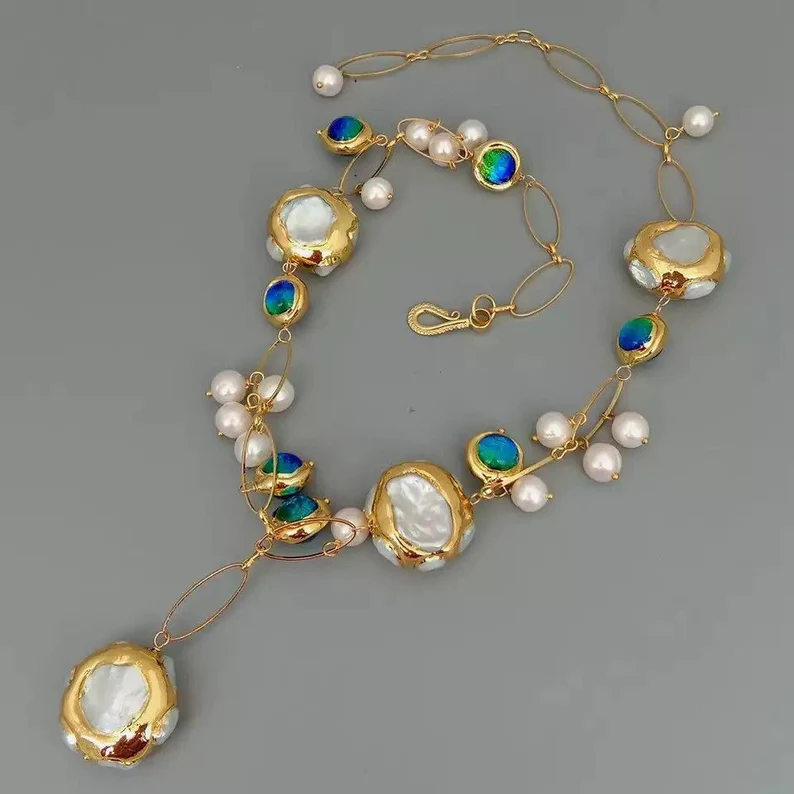
Keshi pearls are famous for their outstanding luster, a key feature that makes them so attractive and valuable in jewelry. Luster is all about how well a pearl reflects light. It’s a big deal because it really shows off a pearl’s beauty and value.
What makes Keshi pearls’ luster stand out is how they form. They grow without a nucleus, which is usually at the heart of a pearl. So, they’re made completely of nacre, the shiny substance that oysters and mollusks make pearls with.
This all-nacre make-up gives Keshi pearls a special kind of shine. Nacre is naturally iridescent, meaning it shines with many colors. So, when a pearl is all nacre, its shine is deep and rich. Keshi pearls glow brightly and have a mirror-like surface, often shimmering with different colors. This happens because light doesn’t just bounce off the surface; it plays with the many layers of nacre, creating an eye-catching mix of color and light.
Also, Keshi pearls’ irregular shapes – they’re part of the baroque pearl family – make their luster even more unique. Their uneven surfaces throw light in all directions, making the pearls look even more radiant. This blend of pure nacre and unusual shapes makes Keshi pearls’ luster really stand out. They’re different from other pearl types, which is why collectors and jewelry lovers really value them.
Keshi Pearls are Rare
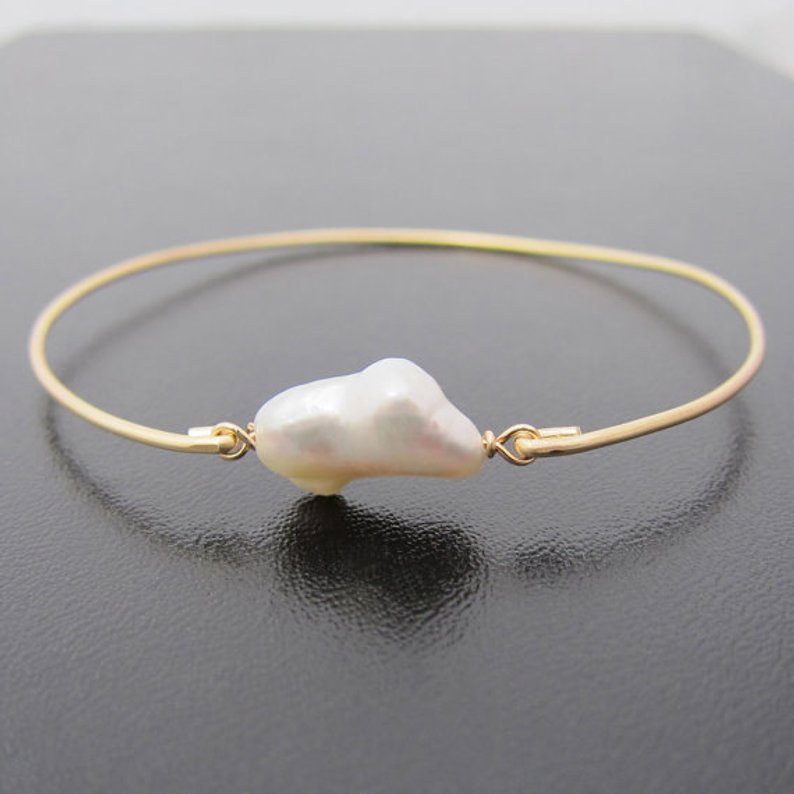
Keshi pearls are becoming increasingly rare, due to technological advances in pearl cultivation. Nowadays, pearl farmers x-ray the oysters and molluscs to find any abnormality in the pearl’s growth. If they find that the nucleus has been rejected, the mollusc is re-nucleated.
All this means that keshi pearls are harder to find, making them valuable and in high demand.
Types of Keshi Pearl Jewelry
Keshi pearl jewelry stands out for its unique beauty and variety, with each piece showcasing the pearls’ natural shine and varied shapes. Necklaces are a popular choice. They often string together different shaped and sized Keshi pearls, creating everything from simple, elegant single strands to more complex multi-strand designs.
These necklaces fit well for both fancy events and everyday wear. The unique, irregular shapes of the pearls give each necklace a special touch, with the light playing off them in eye-catching ways.
Earrings are another common way to wear Keshi pearls. Designers use them to make beautiful drop earrings or simple studs. The pearls’ natural, uneven shapes inspire creative earring designs. These are sometimes paired with other gems or metals to bring out the pearls’ luster.
Keshi pearls also make great bracelets and bangles. These range from subtle designs with just one pearl to more detailed ones mixing several pearls with metals or other gemstones. This variety allows for both subtle and bold styles.
Rings featuring Keshi pearls are also popular. Their unique shapes are perfect for the centerpiece of a ring, set in metals like gold, silver, or platinum. These rings vary from simple to intricate, often with diamonds or other stones for extra style.
Brooches and pendants with Keshi pearls allow for creative designs as well. These pieces often focus on the pearl’s natural beauty and its unique shape and shine.
In summary, Keshi pearl jewelry is valued for its flexibility and distinctiveness. The irregular shapes and various sizes of the pearls offer endless design possibilities, making each jewelry piece one-of-a-kind. From a simple bracelet to a grand necklace, Keshi pearl jewelry is known for its natural elegance and unique character.
History of Keshi Pearls
Keshi pearls, named after the Japanese word for “poppy seed” due to their small size, have a fascinating history linked with the development of pearl farming. This history started in Japan in the early 20th century, especially with Kokichi Mikimoto’s work in pearl cultivation. Keshi pearls weren’t planned; they formed naturally as pearl farmers in Japan began inserting nuclei into oysters to grow pearls. Initially, pearl farmers saw Keshi pearls as unwanted byproducts.
However, the unique charm and features of Keshi pearls eventually caught the eye of jewelers and collectors. Their irregular shapes, stunning luster, and rarity made them valuable. Unlike regular cultured pearls, each Keshi pearl is different, adding to their appeal.
Throughout the 20th century, Keshi pearls became popular in jewelry for their distinct look, different from typical round pearls. They were used in necklaces, bracelets, earrings, and brooches, often combined with other gemstones to showcase their unique shapes and shine.
Today, Keshi pearls hold a special place in fine jewelry due to their natural beauty and rarity. They symbolize both chance and craftsmanship in how they form. Their transformation from accidental products to treasured gems shows a significant shift in how people value natural beauty in jewelry.
Wrapping Up
Keshi pearls showcase nature’s amazing unpredictability and beauty. Formed without a nucleus, they offer a unique luster and various intriguing shapes. Once seen as byproducts, they have now become treasured in the jewelry industry, symbolizing elegance and uniqueness.
Their transformation from unintended creations to highly valued gems reveals the wonders of nature and how our appreciation for natural beauty in jewelry continues to grow.


